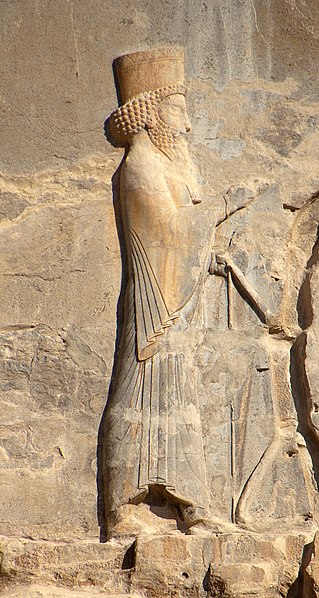The King's Peace was a peace treaty guaranteed by the Persian King Artaxerxes II that ended the Corinthian War in ancient Greece. The treaty is also known as the Peace of Antalcidas, after Antalcidas, the Spartan diplomat who traveled to Susa to negotiate the terms of the treaty with the king of Achaemenid Persia. The treaty was more commonly known in antiquity, however, as the King's Peace, a name that reflects the depth of Persian influence in the treaty, as Persian gold had driven the preceding war. The treaty was a form of Common Peace, similar to the Thirty Years' Peace which ended the First Peloponnesian War.
The King's Peace, promulgated by Artaxerxes II in 387 BC, put an end to the Corinthian War under the guarantee of the Achaemenid Empire. Xenophon, Hellenica. The word "independent" in this translation is more generally translated as "autonomous" (αὐτονόμους in the Greek original).
Antalcidas traveled to Susa to negotiate the peace.
The Peace of Antalcidas was guaranteed by Achaemenid ruler Artaxerxes II.
The Peace was negotiated by Satrap Tiribazos on the Achaemenid side.
Arses, known by his regnal name Artaxerxes II, was King of Kings of the Achaemenid Empire from 405/4 BC to 358 BC. He was the son and successor of Darius II and his mother was Parysatis.
The Rock relief of Artaxerxes II in Persepolis
Retreat of the Ten Thousand, at the Battle of Cunaxa, Jean Adrien Guignet
Armoured cavalry of Achaemenid Hellespontine Phrygia attacking a Greek psiloi at the time of Artaxerxes II and his Satrap Pharnabazus II, Altıkulaç Sarcophagus, early fourth century BC
The King's Peace, promulgated by Artaxerxes II in 387 BC, put an end to the Corinthian War under the guarantee of the Achaemenid Empire.






